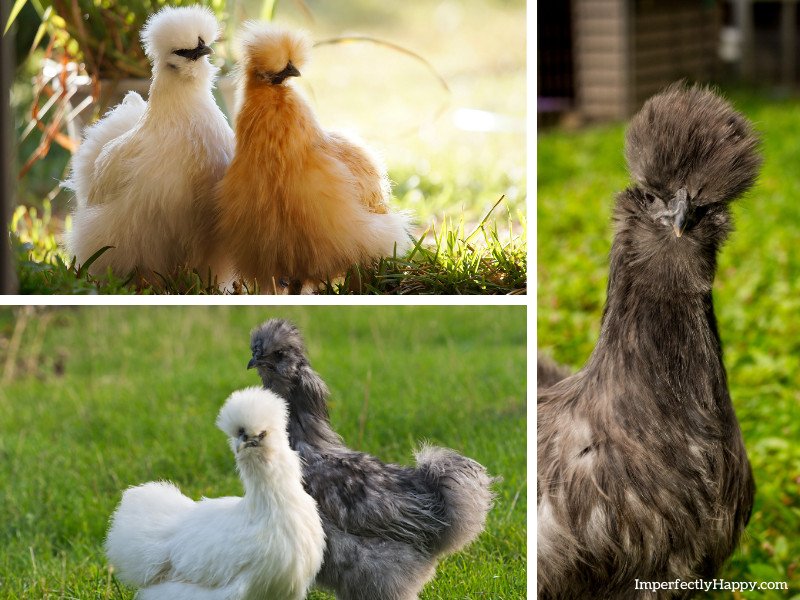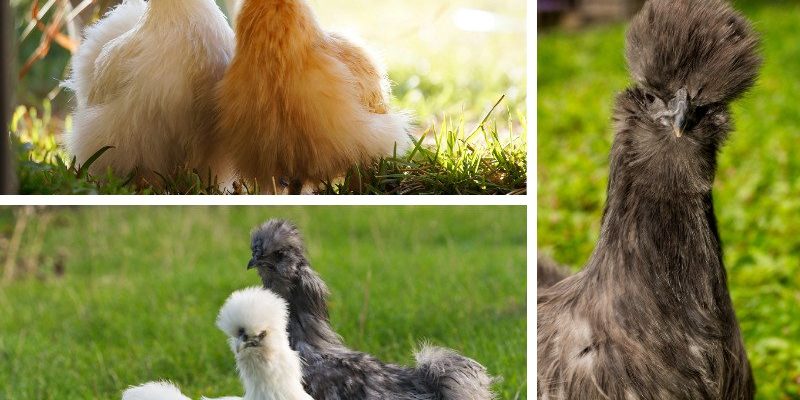
Silkies are not just another pretty face in the chicken world; they have a rich history and a host of fascinating traits that set them apart. These gentle creatures make wonderful pets, but they also have some quirks that new owners might not consider. So, grab your coffee, and let’s explore ten things you might not know about the Silkie!
1. A Fluffy Coat Like No Other
One of the most striking features of the Silkie is their unique feathers. Unlike regular chickens, whose feathers are made up of a stiff structure, Silkie feathers are soft and fluffy. In fact, they feel more like fur than traditional feathers! This special texture comes from a genetic mutation that causes the feathers to lack barbicels, which are the tiny hooks that hold feather strands together.
This fluffy coat doesn’t just look adorable; it also serves a purpose. Because Silkies don’t have the same kind of protective feathers, they are more sensitive to cold and need extra care in chilly weather. Think of it like wrapping up in a warm blanket on a winter’s night. If you’re considering adding Silkies to your flock, keep this in mind!
2. They Have a Gentle Temperament
Silkies are well-known for their sweet and friendly nature. Honestly, if you’re looking for a bird that enjoys being handled and cuddled, the Silkie might just be your perfect match. These birds are typically calm and social, making them ideal pets for families or individuals.
Their gentle temperament makes them less likely to peck or get into squabbles with other chickens. If you introduce a Silkie to a flock, they often blend in easily. Imagine them as the peacekeepers of the chicken world, always ready to make new friends and spread joy.
3. Unique Physical Traits
In addition to their fluffy feathers, Silkies have several other distinctive physical traits. For starters, they have a unique appearance with a small, round body and a short neck. Their skin is also a charming shade of black or blue, and they have dark, almost blue earlobes.
You might be wondering why their skin is black. It’s another quirky trait from that same genetic mutation affecting their feathers. Besides their unusual coloration, Silkies have five toes on each foot, unlike most chickens, which typically have only four. This gives them a distinct look that’s impossible to forget—kind of like a chicken that went to a fancy dress party!
4. Silkies Can Be Broody
Let me explain what “broody” means: it’s when a hen gets all cozy and decides she wants to hatch some eggs. Silkies are known to be particularly broody, which is a trait that many chicken keepers appreciate. If you’re keen on raising baby chicks, having a Silkie in your flock can be a huge help.
These hens will often sit on eggs for long periods, making sure they stay warm and cozy. They’re quite dedicated and won’t easily give up on their mission. If you’re not looking to hatch eggs, it’s important to keep an eye on your Silkie and encourage her to get back to her non-broody self. Otherwise, you might find yourself with a surprise brood of chicks!
5. They’re Not Just Pretty Faces—They’re Great Layers, Too
While Silkies might be more famous for their looks and personalities, they also provide a decent amount of eggs. They’re not the most prolific layers compared to other breeds, but they do lay small white or cream-colored eggs regularly. If you’re trying to build a diverse egg-laying flock, Silkies can contribute to your egg basket, even if it’s in smaller quantities.
Expect about 3 to 4 eggs per week from a Silkie hen. It’s like having a little surprise waiting for you each week! Just keep in mind that their egg production may slow down during colder months or if they go broody. Incorporating Silkies into your flock can add a charming touch to your mornings.
6. They’re Hypoallergenic
If you struggle with allergies, you’ll be glad to know that Silkies are often considered hypoallergenic. Their unique feathers don’t produce the same dander that other chickens do, which can be a real relief for people sensitive to allergies.
This quality makes them a good option for families who want to keep chickens but have members with respiratory concerns or allergies. Just remember, every person is different, and it’s always a good idea to spend some time around Silkies before committing to bringing one home.
7. They’re Excellent Companions
Silkies have a reputation for being social and delightful companions. They love people and often seek out human attention. If you’re the type who enjoys spending time with your pets and forming bonds, you’ll find a lot of joy in having a Silkie around.
Picture this: you’re sitting in your backyard, sipping lemonade, and your Silkie wanders over, ready to check in on you. Their curious and engaging nature makes them a lovely addition to any yard or homestead. Plus, they’re often content to just hang out with you—no special training required!
8. They Come in Various Colors
You might think of Silkies as being just black or white, but they actually come in a variety of colors! In addition to classic black and white varieties, you can also find Silkies in blue, gray, and partridge shades.
This diversity means you can create a flock that not only provides eggs but also looks stunning in your yard. Imagine a delightful mix of soft hues contrasting with the greenery of your garden! Plus, if you’re passionate about aesthetics, this variety can keep your backyard feeling fresh and vibrant.
9. Ancient Roots and Cultural Significance
The Silkie breed has a rich history that traces back through the centuries. Originating from China, they were prized for their unique qualities and were even revered for their supposed medicinal benefits. Historically, Silkies were often mentioned in literature and lore, adding to their mystique.
In some cultures, they are considered symbols of wealth and prosperity. Having a Silkie in ancient times wasn’t just about the eggs or meat; it was a matter of status! Understanding their background adds depth to their charm and makes caring for them feel a little more profound.
10. They’re Not for Every Backyard
While Silkies are a fantastic addition to many homes, they’re not always the best fit for every situation. Because of their calm and gentle nature, they can be timid, which might make them vulnerable if mixed with more aggressive breeds.
If you’re considering adding Silkies to your flock, think about your existing chicken dynamics. It might be wise to introduce them carefully or keep them separate until they’re comfortable. Here’s the thing: while they can adapt well, ensuring a peaceful coexistence is essential for happy, healthy birds.
—
In summary, Silkies are much more than just fluffy chickens with a flair for the dramatic. With their unique traits, friendly personalities, and charming history, they can bring joy and warmth to any backyard. Whether you’re looking for a cuddly pet or a unique addition to your egg-laying flock, Silkies are sure to impress. So, if you haven’t yet welcomed one into your life, maybe it’s time to consider this delightful breed!

